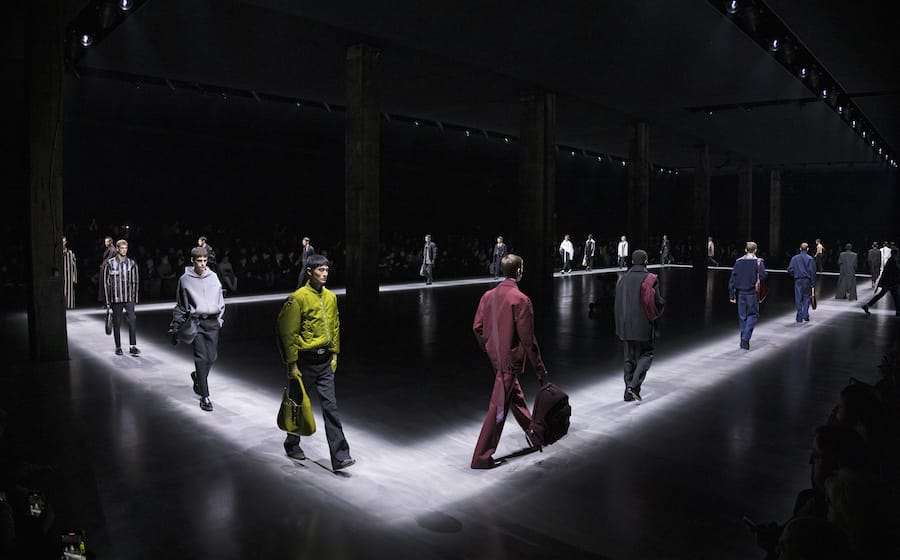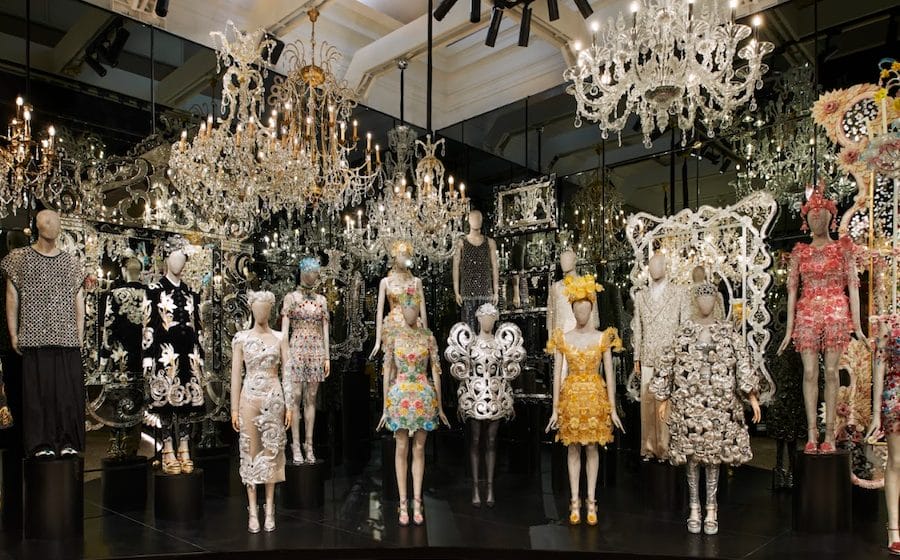
Music and fashion is disrupted worldwide, how is Singapore’s industry going to pick up from this pandemic?
As we enter the fifth week of lockdown — or more intimately known as Circuit Breaker (CB) as it’s being called in Singapore — we’re all starting to make sense of the changes that are happening in our lives. Orchard Road, once helmed as an iconic place for locals and tourists to buy clothes and soak in the retail-vibe has been reduced to what some may call a “dead town”.
Having a personal love for both music and fashion, I’ve been asking the question, “What’s going to happen to these two heavyweight industries?”
Singapore’s culture have depended heavily on importing culture from the United States, China and Europe for the longest time when it comes to music and fashion. We’re more familiar with European fashion houses such as Chanel and Louis Vuitton than local labels such as Depression or Mash Up; the same could be said of music.
Over the last five years, there has been a significant increase in the awareness of Singapore music and fashion through events and emphasis on local talent. There’s also been a rise in collaborations between fashion and music on a global scale that impacted Singapore’s culture as well.
Singapore musicians appearing on fashion magazines are not uncommon, there also has been an increase in music consumption of local artistes with the rise of Spotify and their dedicated playlist for Singapore artiste. Radio stations such as 987 FM and CLASS 95 are now known to play an average of two to three songs by Singaporean artiste in an hour.
All these seem to have increased the growth of local culture in some sense; the growth of culture is also posited through the increase of recognition of music and fashion figures such as Nathan Hartono, Benjamin Kheng and Yung Raja.
—
The Significance of Increased Online Presence
Since the announcement of Dorscon Orange back in 7 Feb 2020, most music and fashion businesses began the “pivot”. Music and fashion are similar in that they both run parallel on three pillars — it’s a multi-million dollar industry, it’s an essential and it’s also a pure art form — everyone listens to music and has to get dressed in the morning. There’s also a scale of basic to luxury.
However, pivoting is a lot like love — even when you try, you might not be able to achieve it.
A sudden surge in the number of livestream concerts occured. Probably out of most musicians’ comfort zone, but it was the “necessary” move. I personally did one and it felt like it was doing something for the sake of doing something. Interestingly enough, the shift to an online presence has been the works for several years now.
With the rise of online shopping, online boutique giants such as Zalora, ASOS and Farfetch has been influencing the way people shop for the last couple of years. Similarly for music, where consumers listen to tunes from CDs to Mp3 players to iPods, and now to streaming platforms — all in the matter of 20 years. However, this question has been bothering me — Is online consumption overcrowded?
“We’ve moved online and shifted the business since end 2018, but we’re still victim to the pandemic. Sales have dropped because people have a lesser need to buy clothes,” shared Nicholas Cho, founder of local clothing line Flesh Imp. He went on to elaborate how the younger generation prefers to click through pages of apparels while using the physical stores more as a showroom. I personally love to shop online; that feeling of forgetting you ordered something a week ago and it comes to your doorstep as a surprise — it’s like unexpected Christmas.
This behaviour has seen a significant increase during COVID-19. From the “trusted” sources of my Instagram friends, I see a similar behaviour. Not so much on clothes, but more kitchenware, furniture and electronics.
So does increasing an online presence really help? How do we feel when we see an ad on Instagram or Tiktok now?
This is in comparison to the days when we see a giant billboard or bus stop ads. For some strange and unexplainable reason, I feel more proud of my friends when they appear on physical magazine covers, on one of the few billboards we have in this country or even those weird flag-like ads we see on road lamps. However, digital ads feels different — I find myself paying a lot less attention.
—
Moving Singapore’s Culture Forward
The day I decided to write this article, I called Rosalyn Lee aka Rozz.
She’s someone that was there at the beginning of my music career and I have a lot of respect for, especially her opinions on both music and fashion. “In the past, present or future — humans are innately social, regardless of platform,” shared the food, fashion and music lover. “Clothes are a form of self expression and music is a form of entertainment; people will just do business differently when this pandemic is over”.
View this post on Instagram
Rozz is right in my opinion. Genres are ever-changing and adapting has always been a key in the success of both fashion and music. Is moving online the right move? “Whatever it is that we’re facing now, let’s try to turn this pain into art,” she added.
Moving online is not anything new. The “live” touch is always going to be something that will not fully go away. We have to be ready as a culture to do more.
As our government tells us what are essentials and what are not. It is obvious that they feel that fashion and music entertainment aren’t an essential. Big Brother is right, it is a way of life that we deliberately choose to live — because it brings us joy and confidence.
Evaluating the current condition of COVID-19, most large-scale music and fashion events would have to be postponed to 202. Concert-goers and social butterflies are going to feel empty with most international acts choosing to postpone their tours and fashion brands possibly scaling back on their events. On the bright side, now more than ever is the time for Singapore’s music and fashion culture to look within ourselves.
Brands can support more Singapore artist in shows, merchandise and partnerships. If you’ve never been to a local music gig before, now is the time.
Adding to what Rozz shared, let’s try to turn this pain into art and let’s support this art by being present and contributing. There are several great government initiatives, especially by the National Youth Council. We’re going to see a rise in more culture-centric events led by leaders in the industry for both music and fashion.
We could start shifting our perspective that now is the start of a new cultural beginning.
View this post on Instagram
Speaking to Zaran, founder of concert promoter “Collective Minds” — who booked many local acts such as ShiGGa Shay and Narelle Kheng as well as foreign acts like Jaden Smith and Manilla Grey — felt the need to make the “pivot”. The creative director did what had to be done by starting “Selects”, an alcohol delivery site.
Despite being a huge move away from his usual business, Zaran still has his eyes set on the prize — he believes that there’s going to be a rise in more local music events and that people are going to be receptive.
“At Collective Minds, we’re seeing this as a time for rebuilding and this time is centred around our local artists. Companies need to start stepping in to use more local culture and talent. Our experiences binds us together,” says the man with the beautiful beard.
—
Future Investments and Re-Assessing Value
Your body is in quarantine, but your mind doesn’t have to be. Now more than ever, take risk and invest in yourself.
The truth is that no one is spared from this pandemic. Speaking to Steven Lam, managing director of Hugo Boss SEA, provided me with some insights that I didn’t anticipate. Steven has had to go through SARS in 2003 and also an economic crisis in 2008, but he shared, “Nothing was as bad as COVID-19. The impact we feel now from COVID-19 is more health and social related. We will feel a longer economic impact that will last us probably till the end of the year.”
I appreciate Steven’s macroeconomic point of view, he recognises that people’s spending behaviours are going to change and as businesses they have to adapt. Hugo Boss has been focussing more on “casualisation” — more casual and comfortable clothes for their consumers — and this will continue with more added strategies.
This applies for most other industries as well. The music industry has to relook at what product we’re pushing into society. Are we able to create a culture where our local music binds us as a community? Are we able to create a culture where local fashion can be perceived as wearing our nation with pride?
However, amidst all this uncertainty, it is up to the creators, the government and the consumers to come together to make this work. We feel the pain from this pandemic, but it doesn’t mean that we can’t come out stronger.
Financial support through sales is the most important thing all music and fashion businesses need now. Instead of just streaming your favourite artist’s music, consider buying their merchandise and show tickets. Music and fashion shouldn’t come “free”. Supporting these artistes will allow them to be able to produce more work independently and freely without the restrictions of doing commercial work that could hinder their individuality and creative process.
This would hopefully pave the way for more uniquely Singapore culture that would hopefully inspire a next generation of local designers and artists.
For now, what our culture really needs is for us to responsibly social distance ourselves. In order to recover and come out stronger — you need to stay home.
Love,
Jon Chua JX
PS: I’ve got a new song out; its called “Give It Back”.








